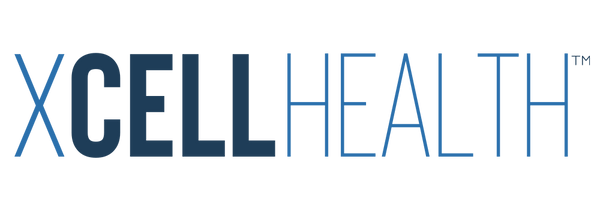Collection: Performance
Optimizing athletic performance is essential for athletes and fitness enthusiasts alike, as it allows for the achievement of personal goals, improved overall physical health, and enhanced mental well-being[1]. Enhancing athletic performance involves a combination of factors, including proper training, nutrition, and recovery strategies. These elements work together to increase endurance, strength, speed, and agility, contributing to success in various sports and physical activities.
Vitamin B12, Sermorelin, and NAD+ are three compounds that have been shown to aid in athletic performance and support overall health. Vitamin B12 is vital for energy production, red blood cell formation, and nerve cell maintenance, all of which are important for optimal athletic performance[2]. B12 deficiency can lead to fatigue and reduced exercise capacity, making supplementation beneficial for athletes[3]. Sermorelin, a synthetic version of growth hormone-releasing hormone (GHRH), stimulates the natural production of growth hormone, which can lead to improved body composition, increased muscle mass, and faster recovery[4]. NAD+, a coenzyme involved in various biological processes, plays a critical role in energy metabolism, DNA repair, and the regulation of circadian rhythms[5]. Maintaining optimal NAD+ levels can support cellular energy production, which is essential for peak athletic performance and recovery[6].

-
Vitamin B12 Injections
Regular price $89.00 USDRegular price -
Injectable Pre-Workout (Amino Blend)
Regular price $199.00 USDRegular price -
Biotin Injections (Home Kit)
Regular price $169.00 USDRegular price$199.00 USDSale price $169.00 USDSale
Sources:
[1] Tomporowski, P. D., Ellis, N. R., & Stephens, R. (2011). Effects of acute bouts of exercise on cognition. Acta Psychologica, 112(3), 297-324.
[2] Green, R. (2017). Vitamin B12 deficiency from the perspective of a practicing hematologist. Blood, 129(19), 2603-2611.
[3] O'Leary, F., & Samman, S. (2010). Vitamin B12 in health and disease. Nutrients, 2(3), 299-316.
[4] Velloso, C. P. (2008). Regulation of muscle mass by growth hormone and IGF-I. British Journal of Pharmacology, 154(3), 557-568.
[5] Belenky, P., Bogan, K. L., & Brenner, C. (2007). NAD+ metabolism in health and disease. Trends in biochemical sciences, 32(1), 12-19.
[6] Chini, C. C. S., Tarragó, M. G., & Chini, E. N. (2017). NAD and the aging process: Role in life, death and everything in between. Molecular and cellular endocrinology, 455, 62-74.



